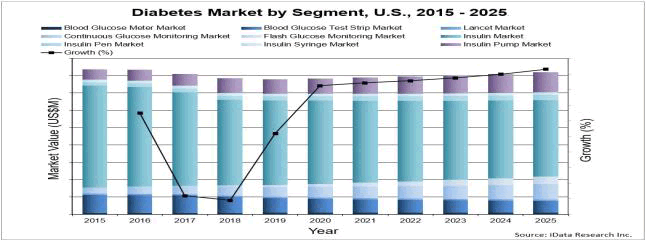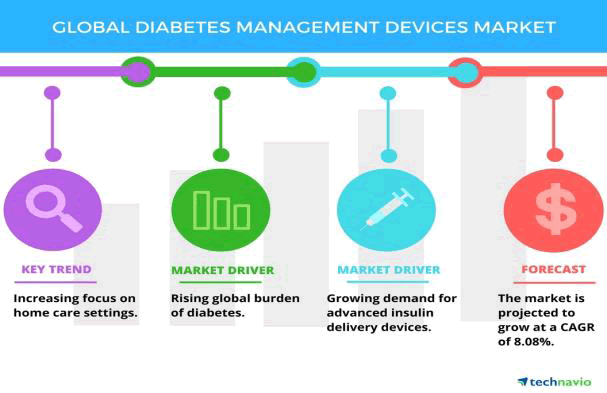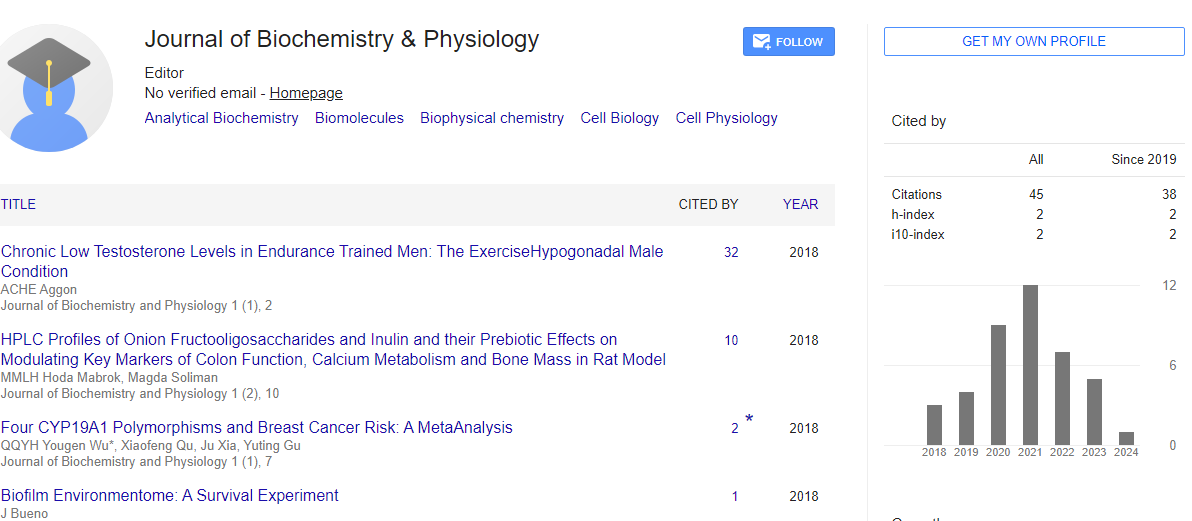Market Analysis, J Biochem Physiol Vol: 2 Issue: 1
Diabetes Therapeutics Market Overview
Nabil Abou Baker
Assistant Professor of Medicine,UChicago,Maryland Avenue Chicago, E-mail: naboubaker@bsd.uchicago.edu
Keywords: Biomolecules
Global Diabetes Therapeutics Market was valued at $66,993 million in 2016, and is estimated to reach $186,842 million by 2023, growing at a CAGR of 16.0% from 2017 to 2023. Diabetes therapeutics is drugs used by diabetics to maintain the blood glucose levels to restore the blood glucose metabolism to a normal state.
The markets for diabetes care products can be segmented as either monitoring/testing products or therapeutics products. Testing products can be further segmented by analyte for glucose, ketones, and microalbumin/albumin. Therapeutic products can also be further segmented as insulin, oral hypoglycemic agents and drugs to treat diabetic complications. Drugs to treat diabetic complications can further be segmented into antihypertensives, lipid-lowering drugs (for both cholesterol and triglycerides), antiarrhythmatic drugs and drugs to treat peripheral vascular diseases. Each segment of the diabetes-care market, therefore, has different dynamics and different emphases, despite the focus on a single condition (hyperglycemia) and its complications.
Glucose monitors have a major consumer-marketing component. While physicians may prescribe a monitor, the patient ultimately has the choice of which monitor s/he uses. Insulin provides very little consumer choice. The treatment regimen prescribed by the physician must be followed and there are very few market options. With Eli Lilly and Novo Nordisk being the two largest producers of insulin, it is highly likely that an insulin user will wind up using one of their products. As time goes by, the options of oral insulin and more intranasal insulin products may offer insulin dependent diabetics more variety in terms of products and delivery methods.
Hypoglycemic agents abound and vary in their composition and mode of action. For the most part, advanced cases of Type 2 diabetes require more than one of these drugs in order for the patient to maintain glycemic control. Because of the wide variety of these products, there is some room for pharmaceutical companies to influence diabetics toward using their products. In the end, the physician may have the last word, but that does not mean that the patient will stay with a physician who does not acquiesce to his/her wishes.
GRAPHS:
Diabetes market by Segment USA:

GLOBAL DIABETES MANAGEMENT DEVICES MARKET:

-
Diabetes 2020
UNITED STATES OF AMERICA
 Spanish
Spanish  Chinese
Chinese  Russian
Russian  German
German  French
French  Japanese
Japanese  Portuguese
Portuguese  Hindi
Hindi 